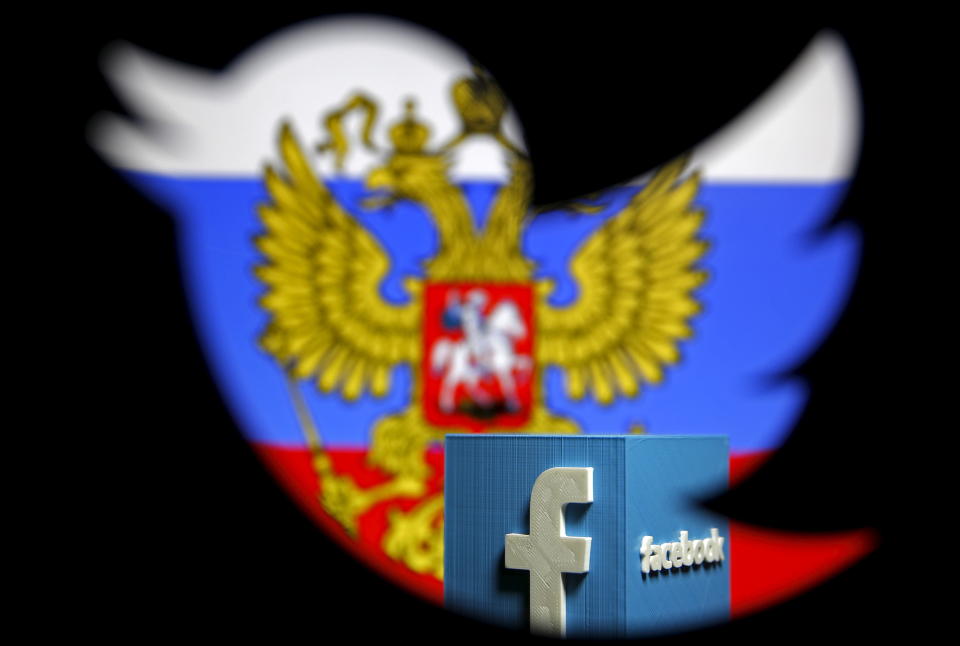Twitter Bans Russia Today, Sputnik From Buying Advertising
Effective immediately, Twitter will no longer permit advertising on the platform from Russia Today (which uses the moniker “RT”) or Sputnik.
Twitter announced the changes in a blog post Thursday morning, linking the companies’ accounts to “Russian efforts to interfere with and disrupt the 2016 Presidential election.” While advertising related to them will cease, the accounts themselves will remain in operation.
Both media outlets are backed by the Russian government and push political narratives favoring its officials. In January, a U.S. intelligence report concluded the two are arms of “Russia’s state-run propaganda machine.”
The social media outlet disclosed RT spent $274,100 on ads in 2016, and $1.9 million on ads since joining the platform in 2011. Twitter said Thursday it will donate those funds to an external group researching “the use of Twitter in civic engagement and elections, including use of malicious automation and misinformation.”
RT responded to the decision in an opinion piece, calling the accusations that it’s seeking to influence people via advertising on Twitter “absolutely groundless.”

The Russian outlet claimed the real culprit here is Twitter itself, blaming the company for recruiting RT to spend heavily on ads during the 2016 election.
“Twitter pushed RT for a large ad buy for the 2016 US election, but the channel declined the offer,” wrote Deputy Editor-in-Chief Kirill Karnovich-Valua.
Sputnik Editor-in-Chief Margarita Simonyan called Twitter’s decision “regrettable,” and reported that Russian President Vladimir Putin vowed the country would respond “swiftly and symmetrically.”
On Tuesday, Twitter announced a number of changes to how it treats advertising on the network, with an eye on political advertising in particular.
The steps, which aim to make political messaging more transparent, follow a similar push by Facebook. Both companies are making policy changes after the federal government launched investigations into their conduct during the 2016 election. The actions also come amid a fear of increased government regulation of platforms like Facebook, Twitter and Google.
Twitter has been under heightened scrutiny from lawmakers, who very publicly criticized the company in late September, after closed-door briefings indicated it had not done enough to investigate its role in misinformation campaigns during 2016 election.
Sen. Mark Warner of Virginia, the ranking Democrat on the Senate intelligence panel, called its presentation “inadequate on almost every level,” adding Twitter’s efforts “showed an enormous lack of understanding ... of how serious this issue is, [and] the threat it poses to democratic institutions.”
Troublingly, both Twitter and Facebook have been scrubbing their platforms of data ― and, in Facebook’s case, thousands of potentially incriminating posts ― that’s invaluable to researchers investigating the Russian disinformation campaign.
Also on HuffPost
It Can Mess With Your Sleep

The result is an exhausting feedback loop that could leave you fried.
It Can Make You Depressed

“We found that if Facebook users experience envy of the activities and lifestyles of their friends on Facebook, they are much more likely to report feelings of depression,” study co-author Dr. Margaret Duffy, a University of Missouri journalism professor, said in a press release.
But, simply being aware that people are presenting their best selves -- and not necessarily their real selves -- on social media could help you feel less envious.
It Can Drain Your Smartphone Battery

Here's how to do it.
It Can Sap Your Focus

It Can Ruin Your Relationship

It Can Make You Socially Awkward

What's more, most of your Facebook friends don't really care that much about you.
It Can Be A Huge Waste Of Time

“It appears that, compared to browsing the Internet, Facebook is judged as less meaningful, less useful, and more of a waste of time, which then leads to a decrease in mood,” Christina Sagioglou and Tobias Greitemeyer, behavioral scientists at the University of Innsbruck in Austria, wrote in a paper published in 2014.
Facebook doesn't always make us feel crummy. But, if it does, it's time to do something else.
It Can Create An Echo Chamber

But Facebook disagrees, saying last year that it was not responsible for creating echo chambers. Either way, Facebook still plays a big role in how people consume information online.
It Tracks (And Shapes) Your Behavior

Eventually, it may get better at understanding people's preferences -- so much better that some experts fear how precisely future marketing and political campaigns will be able to target people. We might even come to "question whether we still have free will," Illah Nourbakhsh, a robotics expert at Carnegie Mellon University, told HuffPost in an interview.
It Knows When You Go To Bed At Night

Though Facebook asked him to take down this tool, the stunt pointed to a larger issue of data privacy: We all reveal a huge amount of personal information online, and we can't always control how others use it.
Love HuffPost? Become a founding member of HuffPost Plus today.
This article originally appeared on HuffPost.

